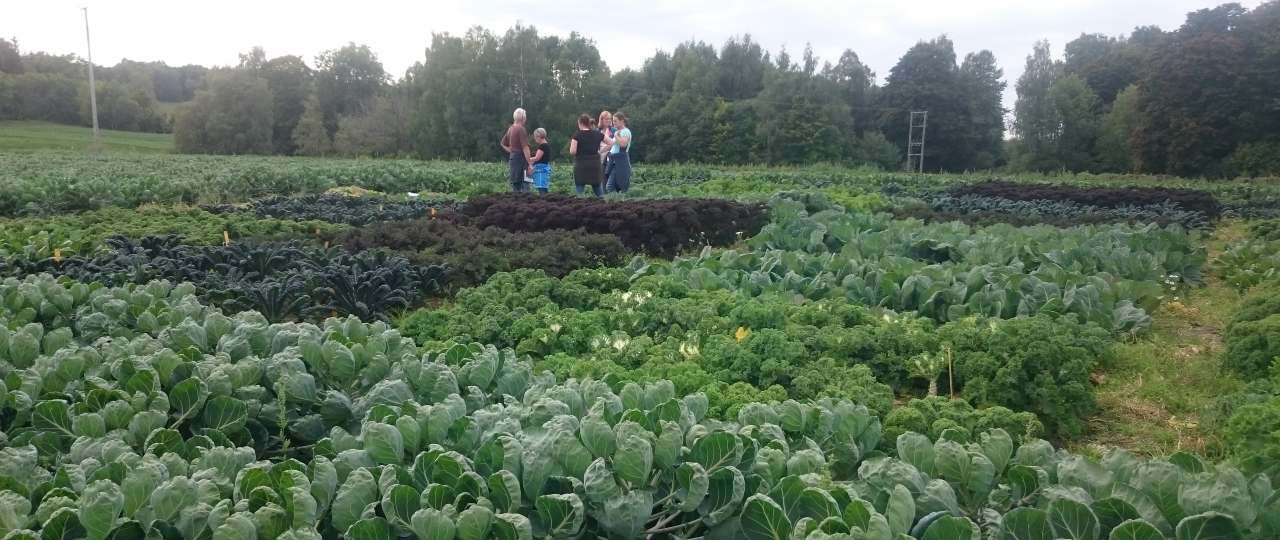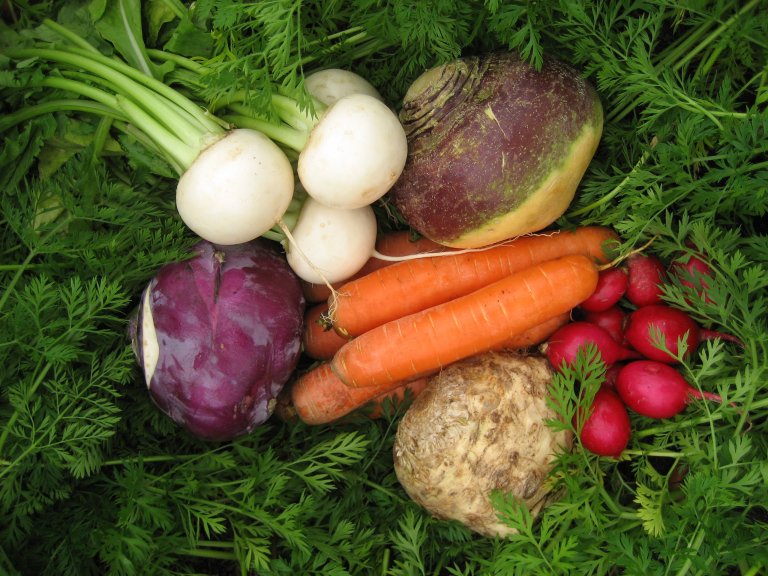
Vegetables
Vegetable crops has a wide diversity where roots, stems, leaves, fruits or seeds can be used as food products. During cultivation, the crops can be affected by different factors related to climate, stress from pests, nutrient availability, cultivation practice. They are further exposed to harvesting machines and grading and packaging lines. We investigate effects of different cropping systems and fertilization strategy on yield and quality characteristics like taste and content of health related compounds. We test new varieties of vegetables in Nordic climate and investigate.

Vegetable crops can be grown along the Norwegian coast line from latitude 58 to 70°N because of the Gulf stream. This result in extreme day length conditions and a short summer period which influence the plants physiological rhythm with respect to making flowers and develop tubers as well as sensory related characteristics and content of health related compounds.

